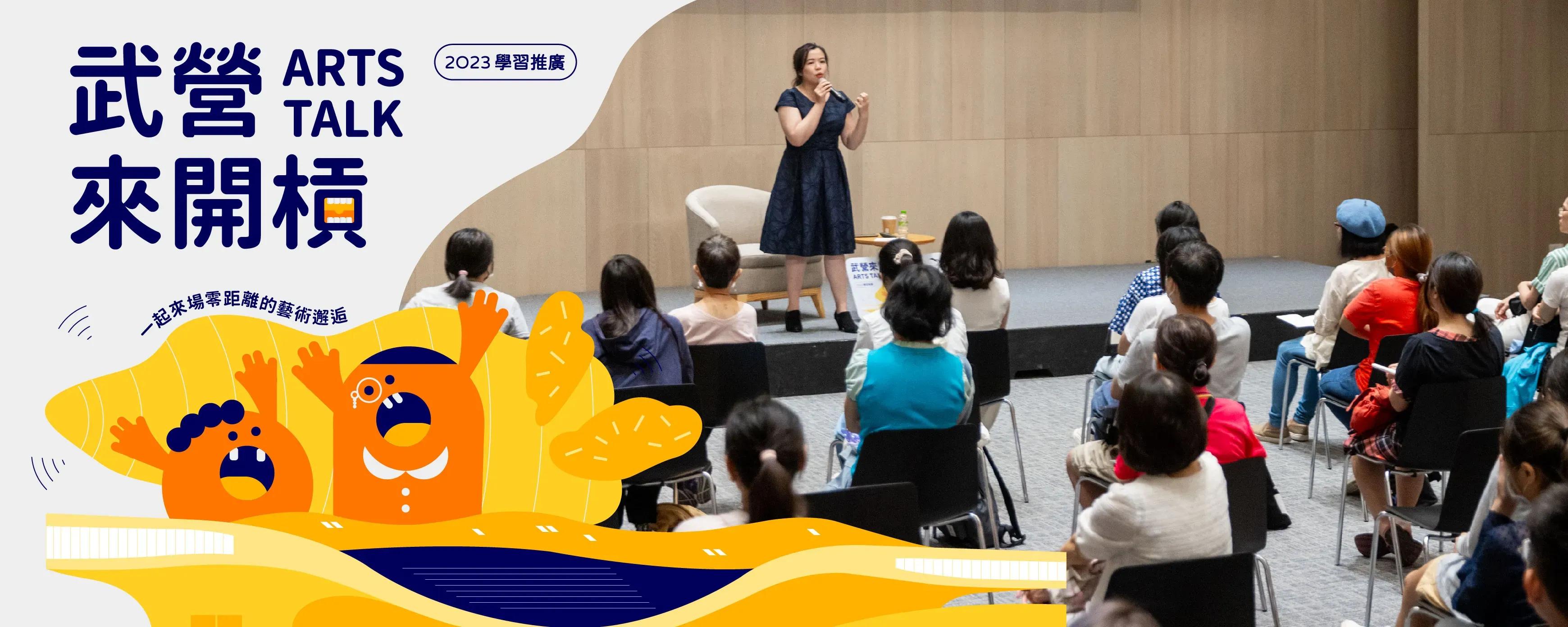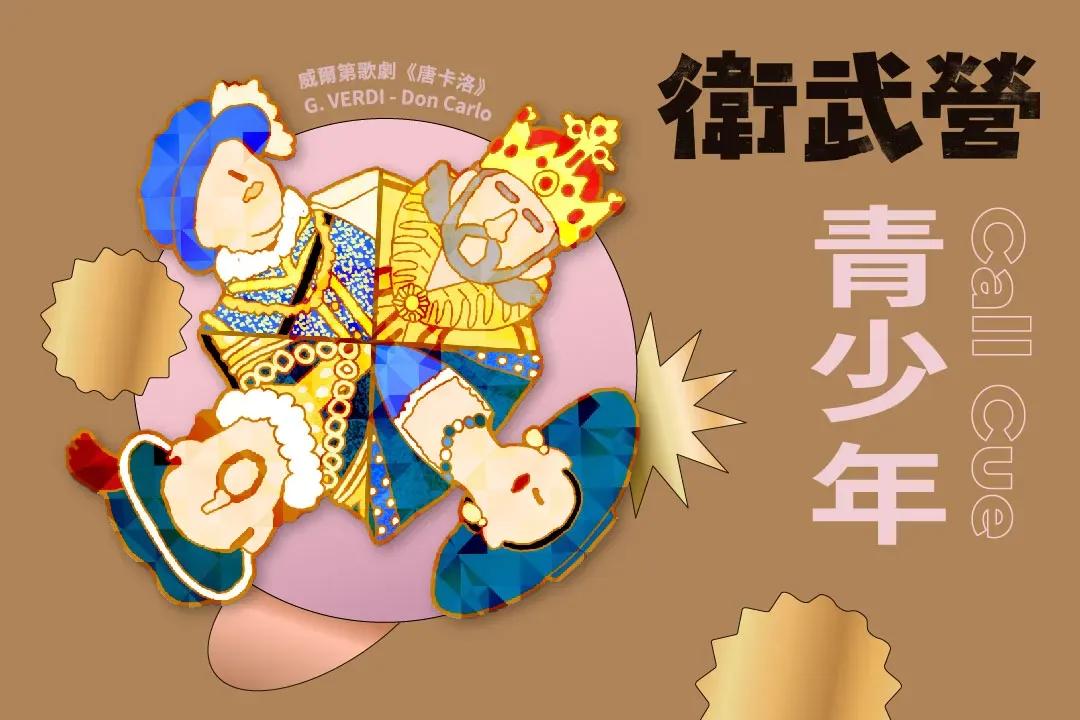July | The Allure of Opera Music
August | Behind the Curtains: Opera's Untold Tales
Written by LIN Ren-pin, CEO of BONART
Embracing Opera: Let It Seep into Your Soul
Opera stands as a magnificent confluence of the arts, seamlessly integrating music, singing, drama, dance, lighting, costumes, and set design. In July and August, Art Talk welcomed the expertise of NTNU's Ph.D. candidate in vocal performance, soprano LAI Chueh-yu, and music lecturer LIN Ren-pin. Together, they navigated the multifaceted landscape of opera, shedding light on singing techniques, its historical trajectory, and more, granting attendees a vivid insight into opera's illustrious heritage and splendor.
A Riveting Exploration of Opera Techniques
LAI Chueh-yu delivered her lecture with vibrant charm, channeling the spirit of top vocalists. She commenced by delineating why The Phantom of the Opera doesn't qualify as true opera. Differentiating between bel canto and semi-belt singing styles, she emphasized their distinct applications, both with and without the aid of microphones, bestowing precious insights.
Addressing the perennial question, "Why are opera singers often robust?", she posited that added weight could bolster vocal resonance. For those aspiring to uphold vocal strength while maintaining a slender physique, strength training to enhance supporting muscles was her recommendation. LAI Chueh-yu highlighted the tonal intricacies of opera, necessitated by the demand to project voices without microphones, contrasting this with the subtle tonal variations in musical theater, where microphones are ubiquitous.
LAI conveyed in-depth knowledge on intricate topics like the mechanics of vocal muscles, the art of controlling vocal cord oscillations through disciplined breathing, and the essence of diaphragmatic breathing. Furthermore, she unveiled the secrets behind the enchantment of soaring high notes.
Celebrating Opera's Melodic Splendor Through Five Arias:
MOZART: "Der Hölle Rache kocht in meinem Herzen" from Die Zauberflöte (The Magic Flute)
PUCCINI: "Che gelida manina" from La Bohème
VERDI: "Ella giammai m'amò" from Don Carlo
BIZET: "Près des remparts de Séville" from Carmen
DONIZETTI: "Il dolce suono" (commonly known as the "Mad Scene") from Lucia di Lammermoor
With passion, LAI regaled the audience with these diverse arias, underscoring the axiom that in opera, tone and timbre crystallize a character's essence. Through her exemplary performance, she exemplified the intimate bond between voice and characterization, proclaiming, "The subtleties and expressiveness of sound mirror an actor's visage." Identifying the pristine vocal register is pivotal to truly resonating with an opera's ethos.
Delving into the Origins of Opera
LIN REN-PIN, apart from hosting the "BONART" Podcast, enriches music enthusiasts with over 200 lectures annually. In August, he embarked on a journey starting with the inception of opera and its very first rendition. He elucidated the distinctions between "polyphonic music" and "monophonic melody." He clarified that harmonious tunes can be employed not just within a singular poem but throughout an entire theatrical piece. Through LIN's insightful narrative, the audience discovered that early operas predominantly drew from Greek myths and historical tales, gradually evolving into operas rooted in romantic realism.
Opera: The Boundless Allure of Merging Story with Music
The aria "Lascia ch’io pianga" from Handel's opera Rinaldo unfolds the narrative of the Crusader hero, Rinaldo, and the enchantress Almirena from Damascus. This piece was tailored for the castrato singer, FARINELLI. Leveraging the film Farinelli, LIN illuminated the annals of castrato singers and the transformative phases of opera, providing the audience with a comprehensive grasp of opera's vocal history. Additionally, he referenced Franz LISZT's interpretation of the second movement of BEETHOVEN's Piano Concerto No. 4. LISZT likened this emotive slow movement to the Greek mythological tale where Orpheus pacifies the Furies at hell's entrance. Through juxtaposing the "Orpheus" narrative with the concerto, LIN vividly portrayed music's innate capability to weave stories, emphasizing its perennial magnetism.
Following a multimedia showcase of opera's chronicles across diverse eras, the live audience achieved a more profound comprehension of the art form. LIN remarked that while attending an opera is straightforward, delving deep into its historical tapestry is a challenge. With guided musical exploration, one can circumvent tedious self-discovery and delve into its intricacies. Humorously, LIN quipped, "Leave the homework to me; you just savor the music." Through his lucid introductions, opera transformed into a beacon of enlightenment for its aficionados, enabling them to not merely hear but genuinely fathom the depth of opera.
Arts is a summary of life experiences.
Arts Talk is a project which gathers together renowned artists from different fields such as music, theater or movie domains for sharing their thought about art with the public, telling us how art can communicate and resonate with its audience.
Creative work is like an extension of every incident in one's life. The accumulation of your everyday experience, the moments when your imagination runs wild, and your persistent cultivation of hobbies can all be the sources of your inspiration, enabling you to write stories that recount your memories of life.
So why not do some brainstorming to see which part of your life, no matter how trivial it is, can be turned into a work of art?
Arts Talk gives you an opportunity to interact directly with art and brings wonderful surprises into your life!




